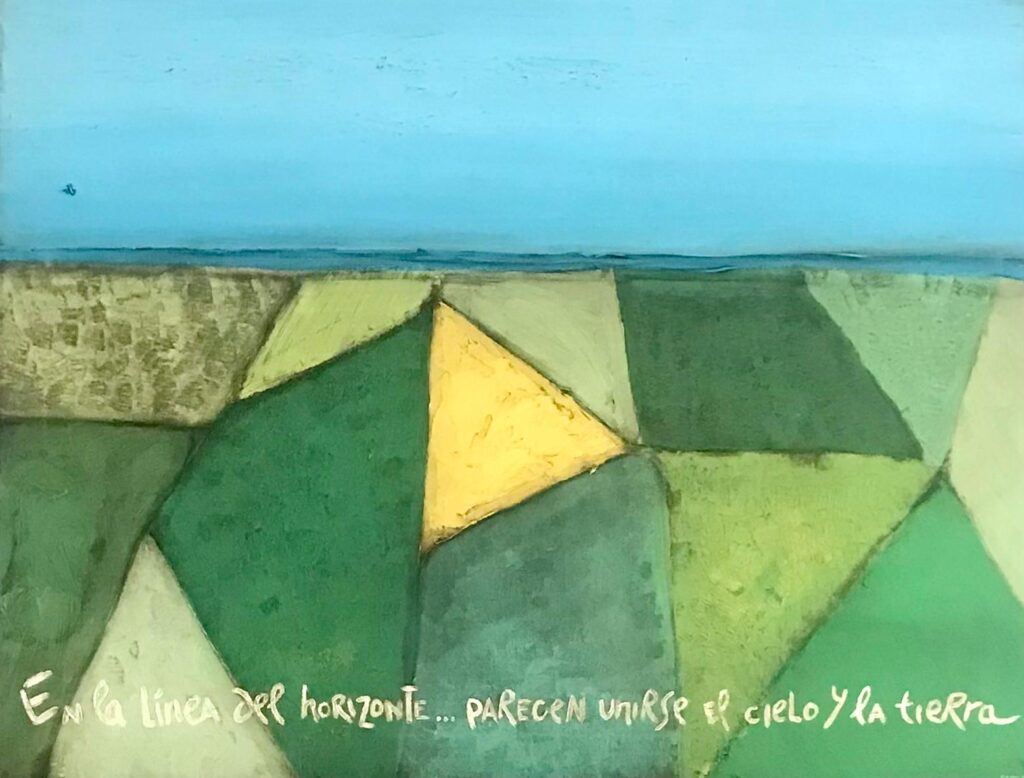Humanism, School of Salamanca and Hispanic American Golden Age
A Legacy of Wisdom and Solidarity

One of the fields of my university teaching and research, especially carried out in recent years, is humanism inspired by faith. And it has one of its peaks in the so-called Spanish Golden Age and its projection in America, with realities as significant as the renowned School of Salamanca, or another school that we could also call Alcalá, spirituality, mysticism, or the humanities of this era. Likewise, this article is dedicated with grateful affection to the professor researcher, and friend José Antonio Benito, missionary
of the Crusaders of Santa María in Peru for many years. And where he has developed an admirable and enormous academic, teaching, research, cultural and evangelizing work in various universities, academic and ecclesiastical institutions, the media, etc. Benito is one of the historians, Hispanics, and best experts on Santo Toribio de Mogrovejo, whose blog we recommend.
In this splendid and golden era of culture, thought and mission of the 16th century, which can extend in part even to the 17th century, we have geniuses, saints, or witnesses of faith as significant as the Dominicans F. of Vitoria or D. de Soto, the nucleus of this Salamanca school, which we can expand with the Jesuits F. Suárez or J. de Mariana, and even Fr. Luis de León, a teacher at the university of said school; in Alcalá with his promoter, the Franciscan Cardinal Cisneros, Santo Tomás de Villanueva, educated in the Cisnerian spirit and who also taught in Salamanca; Saint John of the Cross, also trained at the University of Salamanca, and Saint Teresa of Jesus, reformers of Carmel, summits of letters, poetry and Carmelite mysticism, Saint Ignatius of Loyola, Saint John of Ávila, Br. Luis de Granada or other saints of the time.
As you can see, it is a glorious time of faith and culture, like forgetting here a Cervantes or even a Velázquez, which in turn is linked to Renaissance or utopian humanism in other parts of Europe with Saint Thomas More, Luis Vives (of Spanish origin), T. Campanella… All this Hispanic and European humanist flow had its clear influence in America, with other saints and testimonies of the faith or missionaries who, inspired by this spirituality and training in humanism developed (especially) in Salamanca, they propagated it and took it to the mission, to the same practice. There we have the aforementioned Mogrovejo, San Francisco Solano and San Juan Macías, so united to a San Martín de Porres or a Santa Rosa de Lima, in which it can be considered precisely as the Peruvian Golden Age. The one known as the Dominican community of P. de Córdoba, A. de Montesinos together with Bartolomé de las Casas, A. de Valdivieso (first martyr in America), San Juan de Zumárraga, “Tata” Vasco de Quiroga, the Canarian San José de Anchieta or others who (as has been studied) can be called the Fathers of the Church in America.
It can be seen that these schools and names mentioned are closely linked to mendicant spirituality (with a Saint Francis of Assisi or Saint Dominic of Guzmán), which has an essential reference in Saint Catherine of Siena, to the Augustinian and Ignatian spirituality. And they offer us an authentic reforming, mystical, missionary and humanist spirit with its contributions, lights, limits or shortcomings as usually happens in authors or the human. More, whose core is the Incarnation of God in Jesus and his humanity, humility, poverty and sacrifice until his death on the Cross. The incarnated, kenotic, crucified and resurrected Christ, revealed of the Father who gives us The Spirit with His Grace. That Mystery of the Trinitarian God, manifested in Jesus Christ, who gives us salvation with his Kingdom of life, of brotherly love, peace and justice liberating from death, from evil, from sin, from all selfishness and injustice with its idolatrizes of wealth -being rich, of power and violence.
Hence, the main and inseparable love for God and the other, for each human being exercising their own charity in a Catholic (universal) perspective. Beyond every barrier or border, and that cannot be dissociated from promoting the inalienable values or principles of life, dignity, the common good of all humanity, peace and social and international justice with the poor of the earth (the oppressed, excluded or last) and the victims of history. The sacred and inviolable life and dignity of every person, of the people with the poor and the victims, has its foundations in the fact that each human being is created by the Father as the image and Son of God, is saved by the Son Jesus Christ until he gives his life for each person, whose body and being is a temple of the Spirit of life (humanizing, full and eternal). Similarly to the Eucharist and inseparable from it, the other, every person, especially the poor and crucified (victims): they are the real presence (sacrament) of the incarnate, poor and crucified Christ as the Gospel itself communicates to us (Mt 25), 316).
We have here, then, all the theological, anthropological and mystical bases of humanism inspired by faith with its moral and social teaching (DSI), with Saint Thomas Aquinas as a reference, of which our authors and saints or witnesses were teachers, pioneers and authentic testimonies. Indeed, in the face of what liberalism and capitalism says and imposes with a Hayek, the Salamanca school with said humanism (along with all these names or witnesses mentioned) teaches that individual freedom, whether economic or political, must be guided by this anthropological, moral and political foundation with said values or principles. In this way, the economy, with its mission to serve the life and needs of the person, must be guided by the principle of the universal destination of goods, which has priority over property. Thus, clearly showing the inescapable solidarity and social nature of all property, for this fair distribution of resources, always associated with decent work with fair salaries.
This equity and universal purpose in the distribution of goods, therefore, is rooted in charity inseparably linked to social justice that values wealth-being rich as immoral and anti-evangelical, since we can only possess what is just (necessary) to live. . Therefore, everything else belongs to the poor, out of justice, all these stolen goods, which the rich have extra, must be restored to them. In line with the Tradition of the church with the Holy Fathers, as taught by the Schools of Alcalá and Salamanca with Vitoria guided by Aquinas (Comments on the 2nd, III, 74-75 and 269-270). It is true holiness, to which we are all universally called, realized in fraternal love following Jesus humble and poor in the Spirit, which is exercised with spiritual and evangelical poverty, that is, the fraternal and supportive communion of life, of goods and action for justice with the poor of the earth. In the face of these false gods and idols of wealth-being rich, having, possessing, power and violence.
In this sense, the authorities or governments and their states together with the social community (civil society), whose main subject is the people guided by natural law (moral and divine), are responsible for controlling and regulating the economy, the market and the goods; with social justice policies, such as the moral duties of contributing to a fair fiscal system, paying taxes, where those who have the most contribution a greater number of goods or resources. This is clearly shown by these Schools with Vitoria in their Moral Sentences (I, 93-133), based on said Thomasian legacy with this law and natural law, which are pioneers of human rights and international law. Together with these missionaries and first witnesses of the faith in America, they defended the life, dignity, rights and duties of the native populations of America; promoting relationships and institutions with planetary reach to ensure peace, justice and the most universal good with these human, civil, social, economic, cultural and religious rights and duties.
The so-called first generation rights, associated with civil and political liberties. Native peoples, by human nature, are free from all slavery and domination that is immoral and unjust, therefore, they are called to be protagonists of their management in public, civil and political life. Second generation rights, with the essential values of justice and social equality, due to the constitutive corporeal and sociable nature of the human being. These native peoples are the managers in the fair distribution of goods and property with their universal destiny, in a decent job with a fair salary that comes before capital, in the establishment of social and public policies that safeguard: this fair taxation; the quality and universality of these rights to education, health, housing, etc.
Third generation rights, of all peoples based on international solidarity, such as human development and integral ecology with the rights to food, water, land, peace or a sustainable environment. And those of the fourth or last generation, valuing the culture and identity of said peoples, their languages, their traditions and popular religiosities, their spirituality since faith is not imposed, it is proposed, with an adequate enculturation of it, as transmitted to us likewise Saint John Paul II. We conclude by highlighting the recognition and gratitude to all this legacy of said humanism, schools, authors, missionaries and testimonies as Pope Francis himself does in Querida Amazonia (QA). “Kerygma and fraternal love make up the great synthesis of all the content of the Gospel that cannot fail to be proposed in the Amazon. This is what great evangelizers of Latin America such as Saint Toribio de Mogrovejo or Saint José de Anchieta experienced” (QA 65).
Related

Emilio Girón: Stubbornness and Tinto de Verano
Exaudi Staff
30 March, 2025
5 min

Facing Divorce as a Christian Couple
Laetare
28 March, 2025
2 min

Mars Colonization: Technological Progress or Threat to Human Dignity?
Observatorio de Bioética UCV
28 March, 2025
9 min

The Good Smell of Coffee
Edistio Cámere
27 March, 2025
3 min
 (EN)
(EN)
 (ES)
(ES)
 (IT)
(IT)

